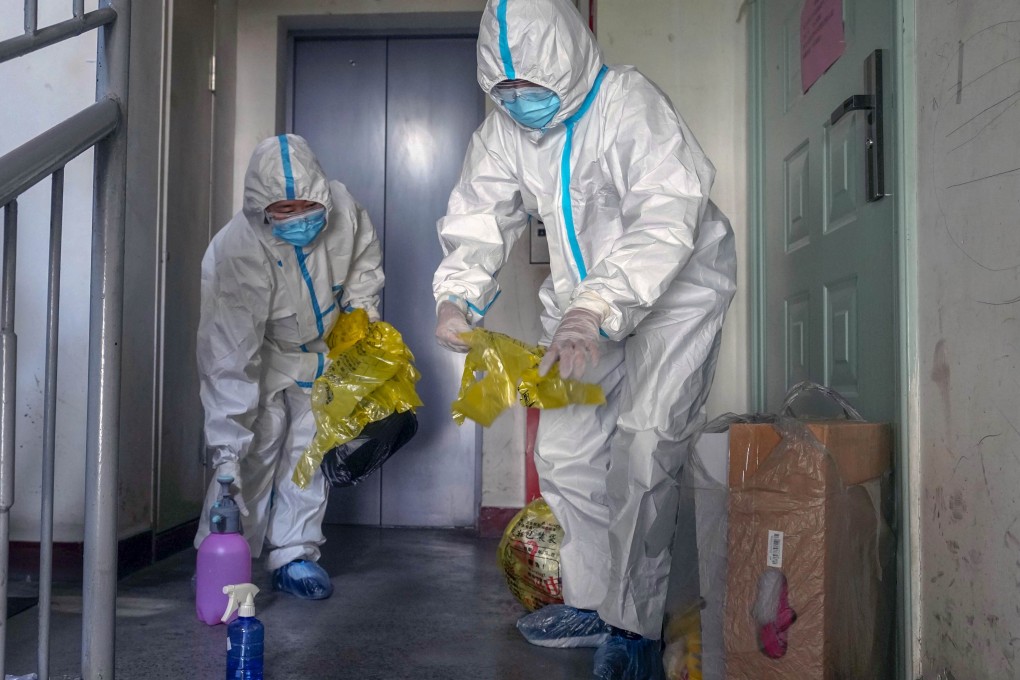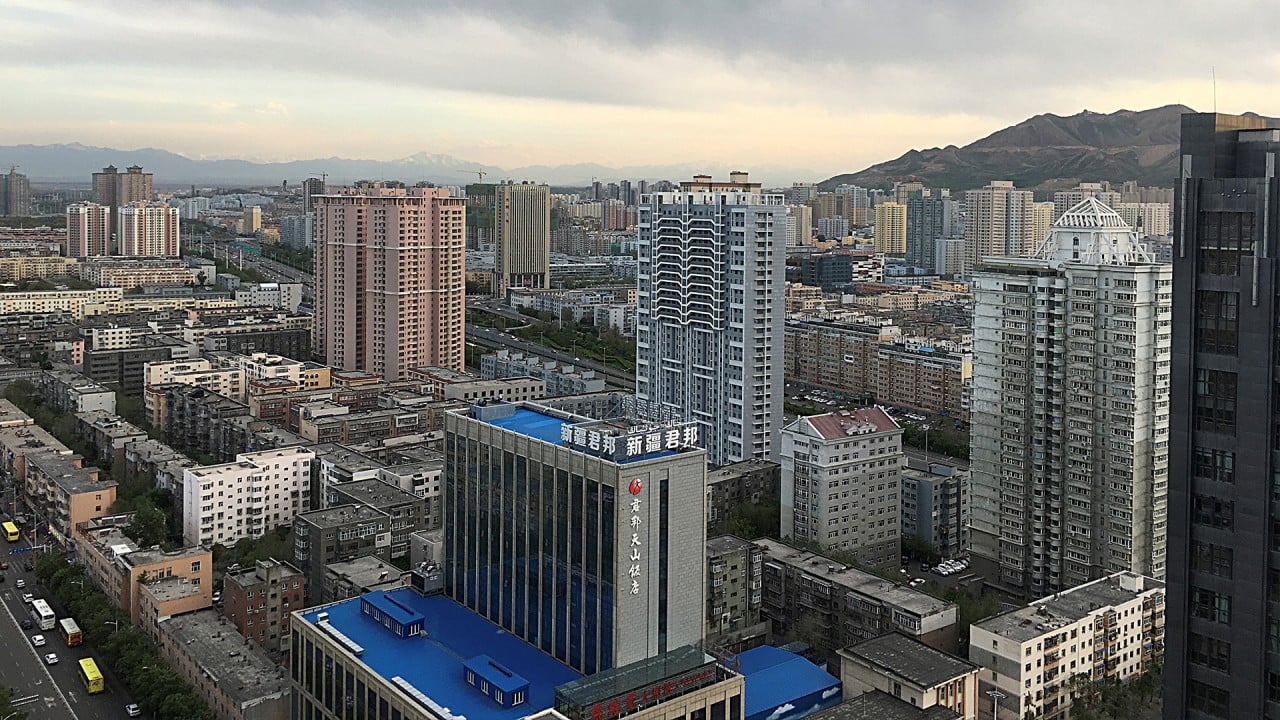Xinjiang starts to ease Covid-19 lockdown after surge in social media anger
- Residents have been trapped in their homes for more than a month despite no new cases for past 10 days
- Censored complaints mostly from Han Chinese, highlighting difficulties in assessing reports from largely Muslim region

The city of 3.5 million people, which has been in strict lockdown since mid-July, has reported no new cases of the disease since August 16.

01:26
Capital of China’s Xinjiang region placed under lockdown as coronavirus returns
At least two people in Xinjiang who left their houses without permission were handcuffed to fences as a punishment, according to photos circulating on Chinese media. However, the South China Morning Post was unable to confirm the authenticity of the photos, or how frequently this had occurred.
On Monday the Urumqi city authorities announced an easing of restrictions for some communities, with residents now permitted to carry out individual activities within their own compounds. “Businesses in communities such as supermarkets, convenience stores and fruit shops may reopen in the specified hours,” a notice on the local government website said.
Many of the posted complaints used hashtags for other cities, such as Beijing or Shanghai, after residents said comments under Urumqi or Xinjiang were censored. The Post was unable to verify all accounts, but conversations with Urumqi residents or those with family in the city indicated restrictions had been severe.
The Xinjiang region, with its large Muslim ethnic minority population, is especially sensitive for Beijing, which has built a vast surveillance and security network in the area to counter what it calls separatists and terrorists. The UN has said hundreds of thousands of Uygurs and other minorities are detained in internment facilities.
